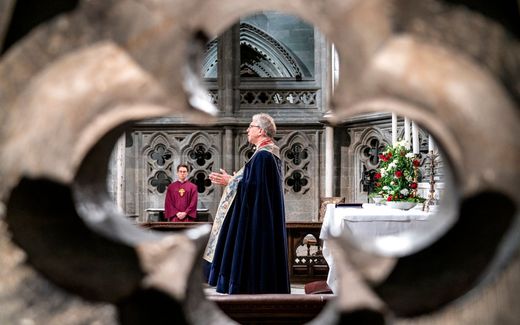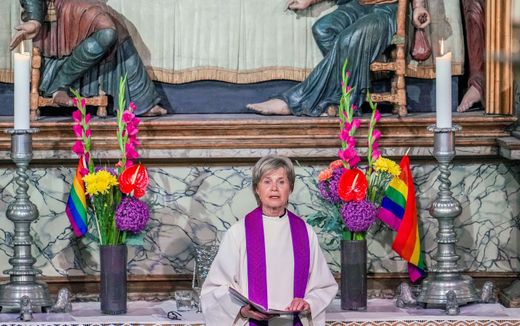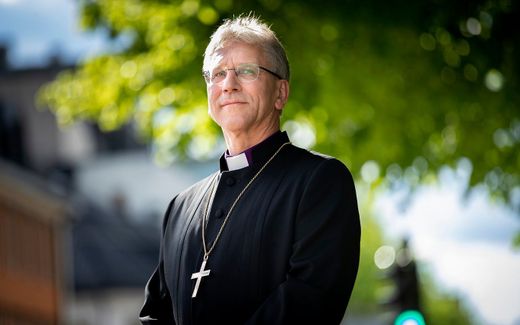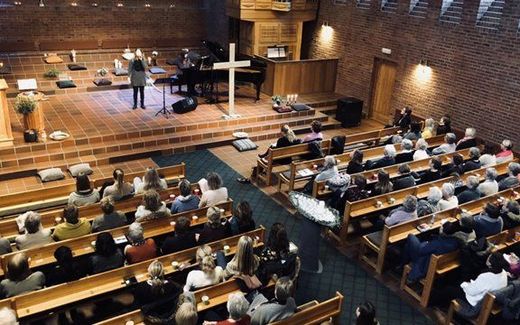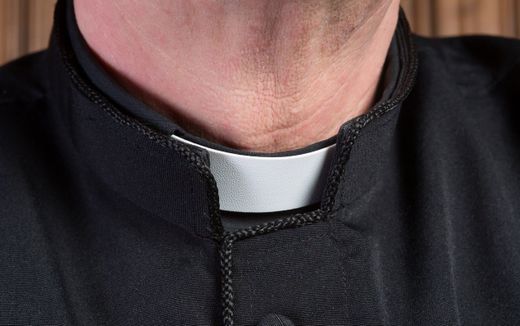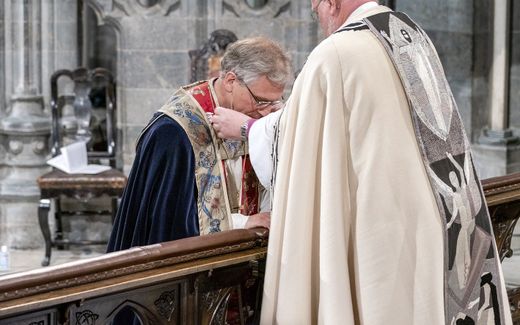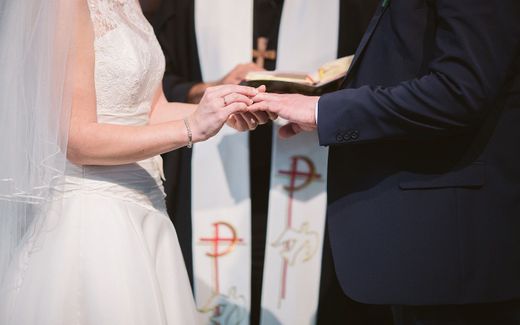Norwegian Storting wants to introduce gender quotum in the church
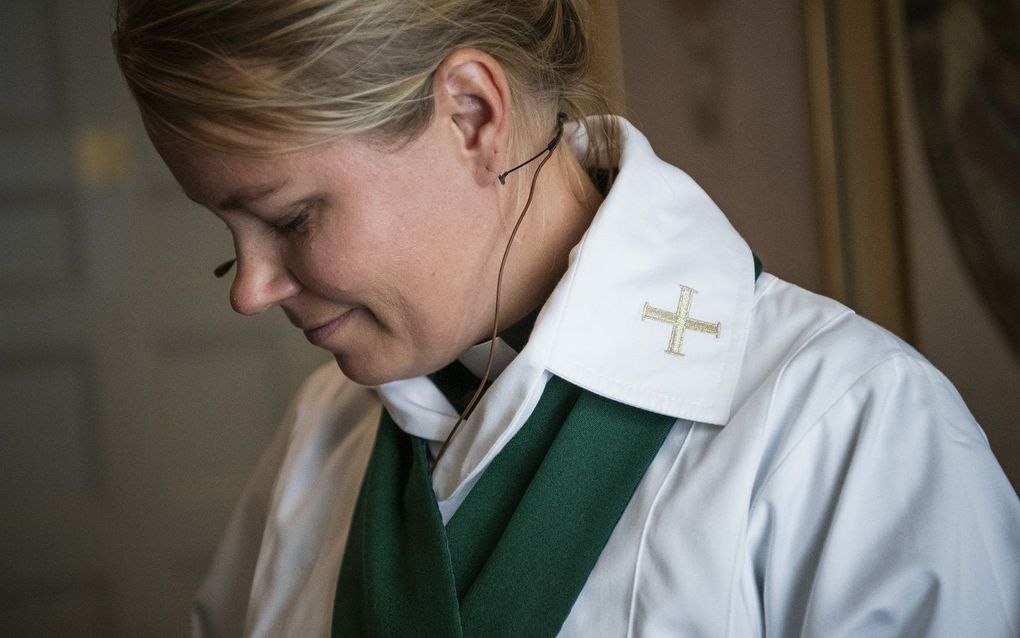
Scandinavian priest Sandra Signarsdotter is getting dressed ahead of the Sunday service. Photo AFP, Jonathan Nackstrand
Northern Europe
To receive funding, a religious organisation must have a board where at least 40 per cent of the members is female and at least 40 per cent male. The new consultation draft of the Religious Communities Act wants more women to reach top positions, also in the church.
Minister Kjersti Toppe, who is responsible for politics around religion in Norway, has presented a new draft for the Religious Communities Act. It contains several proposals that are now sent out for consultation, Vart Land writes.
One of the proposals that can have a great impact on religious communities is a gender quotum for church boards. Toppe has thought out three possibilities in which this measure can be implemented.
Efforts
The first one is by introducing an "absolute requirement for the central bodies of religious communities." This requirement would give the government the power to withdraw grants if a church does not live up to the demand of having a board with at least 40 per cent female and 40 per cent male members.
Another possibility would be to set "activity requirements", Vart Land writes. The quotum will then not be limited to the top bodies of religious organisations but instead apply to other committees as well. To get a grant, a religious community must show efforts to reach the 40 per cent goal.
And a third option would consist of a combination of the former two. The government could then set an absolute requirement for the main leading body of a community while implementing "activity requirements" for other religious organs.
Levels
According to Toppe, the second option would be the best. Religious communities must show that they have plans to reach the 40 per cent share for women or men at all levels", she explains.
The Minister acknowledges that an absolute requirement may be hard to fulfil for religious communities. However, she points out that it is also important to keep up dialogue with religious communities.
Democratic conditions
The consultation draft for the Religious Communities Act contains more important suggestions. One of them is that religious communities must have at least 100 members in order to be eligible for a grant. Currently, that number is 50.
In addition, Toppe wants the authorities to have more power over religious communities that "threaten the country's democracy." Therefore, "democratic conditions" will be introduced. Religious communities, for example, may not glorify violence and threats against politicians or political activities, attempt to prevent or influence elections, and call for terror and extremism." Furthermore, they must also not stimulate believers to disobey Norwegian law, among other things. If a community does any of these things, funding should be cut, Toppe asserts.
The consultation period for the bill has now started. Next spring, the Storting wants to have a completed proposal ready for debate.
Related Articles


